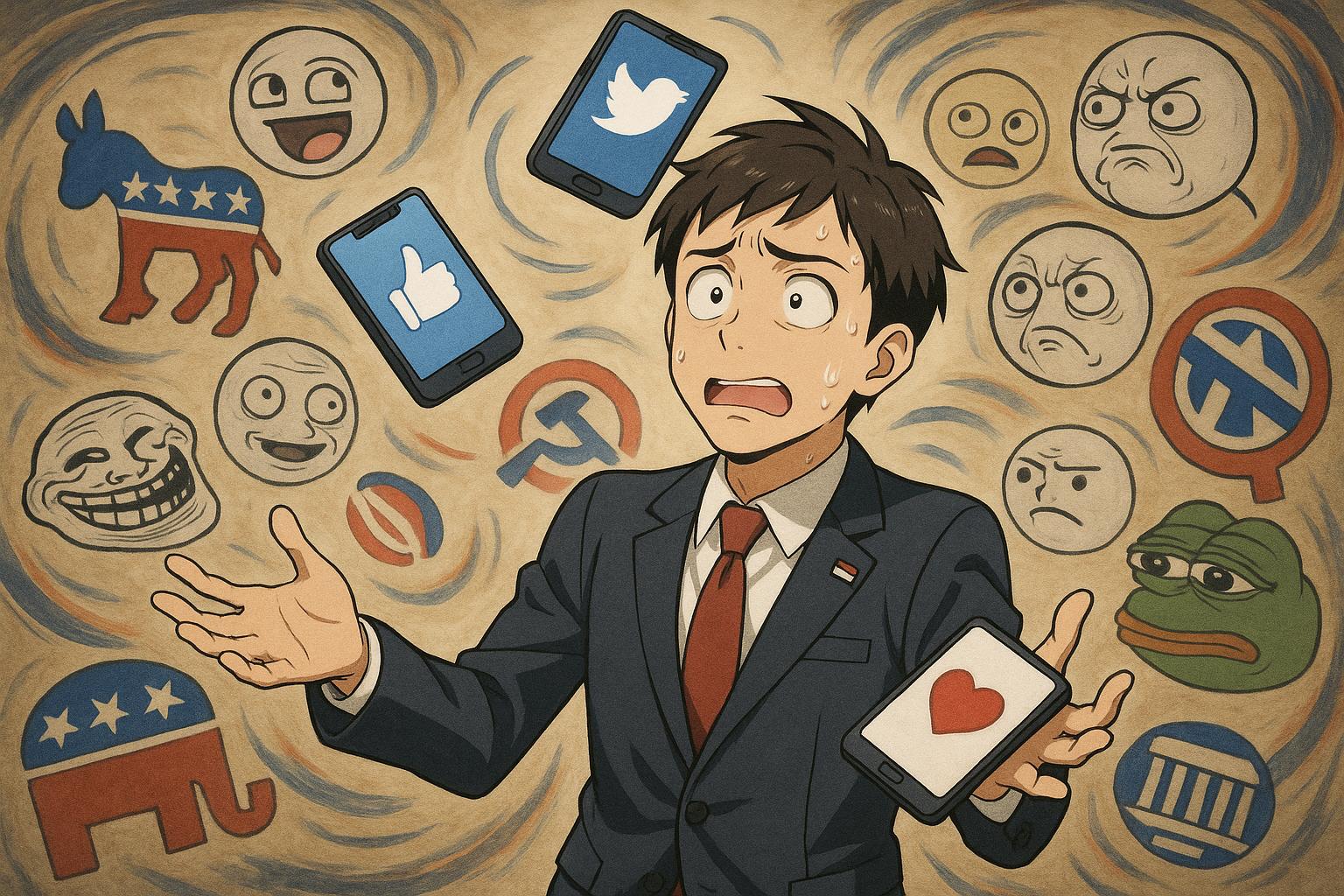In today's digital landscape, the presence of politicians on social media presents a troubling issue. While some claim these platforms are essential for engaging younger constituents, many express deep concerns about authenticity, transparency, and the implications for political discourse in such easily manipulated spaces.
Political engagement among young people has plummeted, prompting many politicians to scramble onto platforms like TikTok and Instagram in a misguided attempt to connect with a demographic that frequently views politics as a relic of the past. The casual language and trendy memes employed by certain elected officials might elicit eye-rolls, but they underscore a disconcerting unwillingness to grapple with serious issues. Social media, instead of being a tool for genuine engagement, risks becoming a stage for superficial performances where politicians prioritize likes and shares over meaningful dialogue. This "transparency" often serves as little more than a veneer, concealing the true nature of policies funded by taxpayer money.
While some attempt to blur the line between genuine engagement and cringe-worthy antics, critics point out that the informal nature of these platforms often dilutes serious political discourse. Recent discussions reveal that social media can act as an echo chamber for extreme partisan ideologies, distorting policymakers' understanding of the electorate's sentiments. Studies show that moderation and reasoned debate struggle to find their voice amid the cacophony of extreme views, creating a breeding ground for miscommunication and misinformation.
Moreover, the fast-paced nature of social media frequently leads to impulsive remarks from officials, which can carry severe repercussions. The rapid spread of misinformation, exacerbated by some politicians’ reckless usage of these platforms, raises significant doubts about their efficacy for serious political communication. Data suggest that a considerable number of users prefer personal, non-political content from politicians, further complicating the matter. While the audience may seek a relatable side in public figures, this can easily spiral out of control, mismanaged in the public sphere.
Furthermore, the proclaimed aim of fostering direct citizen engagement can inadvertently undermine the essential roles of political parties and the media in moderating information. This more immediate communication channel risks eroding the checks and balances crucial to a healthy democracy. As politicians skirt established channels to directly engage voters, the possibility for disinformation and polarisation escalates, further complicating an already troubled landscape of political communication.
In scrutinizing this evolving dialogue, it is evident that the use of social media in politics is fraught with peril. Opportunities for real-time outreach, particularly to younger voters, coexist with serious concerns over misinformation and the trivialization of critical governance matters. Politicians must recognize their responsibilities and navigate this terrain with caution, as the power of social media can shape public opinion and discourse in alarming ways.
Ultimately, the interaction between elected officials and their constituents on social media requires careful oversight. Striking a balance between relatability and maintaining serious political engagement is imperative. If politicians genuinely wish to foster a more informed and engaged citizenry through these platforms, they must commit to this task with integrity, transparency, and a keen awareness of the potential risks involved. The stakes have never been higher, as the new government trajectory under Labour becomes clearer, revealing a disconcerting shift that could undermine the very foundation of our democracy.
Source: Noah Wire Services
